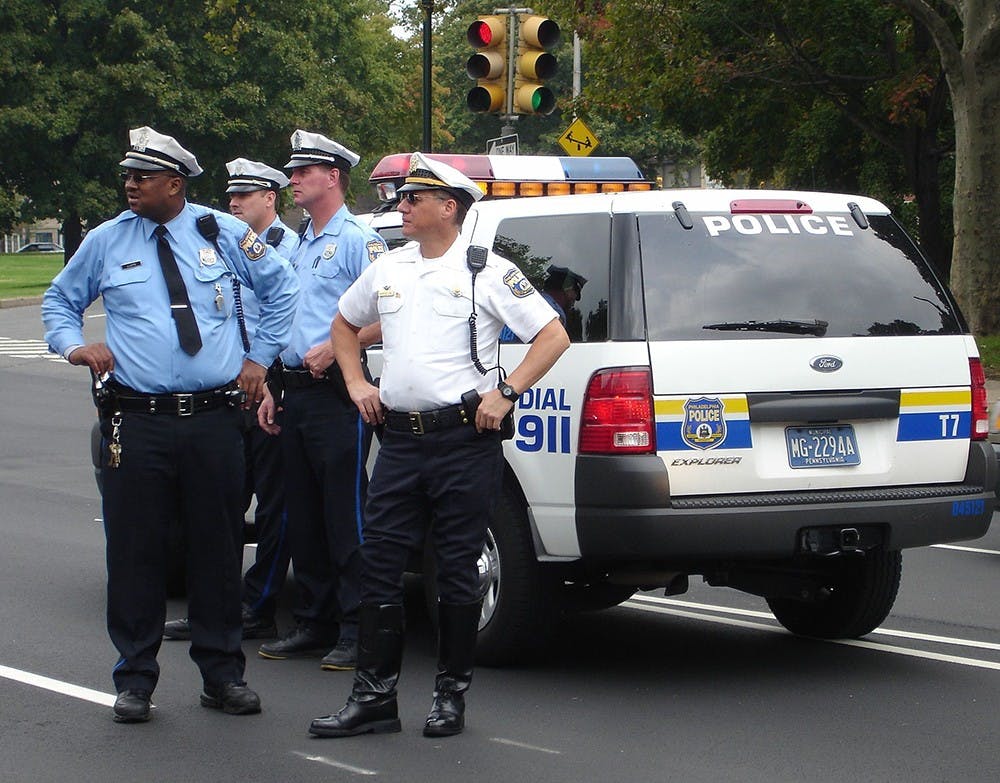The Charlottesville Police Department has begun to use body cameras with several of its officers, and will continue to make efforts to expand their use.
Neighborhood Services Bureau Commander Stephen Upman said many police departments throughout the country are moving to install body cameras in order to document police interactions with the public.
“[Body cameras] give us the ability to conduct reviews when necessary,” Upman said. “They give us an additional means of documentation.”
Upman said the total expense to install body cameras for the Charlottesville police department is around $435,000, which includes the cost of all the IT equipment, the clouds, cameras themselves and the equipment for downloading videos that officers capture.
Currently, there are five cameras deployed by control officers, and the commander in charge of the body camera program was recently sent to a conference which offered updates on case law, equipment and best practices of body cameras.
The landscape of the equipment is changing and taking a slow and methodical approach is to ensure everything functions correctly, Upman said.
“We want to make sure we are in line with best practices and all of our infrastructures are operating correctly before we do a full deployment,” Upman said.
The body-worn camera program is currently on hold at the Albemarle County Police Department due to a lack of sufficient funding.
Public Information Officer Madeline Curott said in an email statement that the cost to outfit each sworn officer with the camera is around $100,000, not including other expenses for the full implement of the program.
“We are exploring grant opportunities to introduce a smaller amount of cameras to selected operational personnel — possibly beginning with our traffic unit and school resource officers,” Curott said.
Several local police departments in Virginia have already deployed body cameras, even though the expenses were high.
The University Police Department outfitted every officer with body cameras in Sept. of 2015, and the extensive process to identify, select and purchase the equipment started in the spring of 2014.
Community Service and Crime Prevention Coordinator Benjamin Rexrode said in an email statement that the motive to install body cameras was neither a result of any incident nor the intention to become the first in the local area to use them.
The technology will be used to keep up police officers’ professionalism and accountability.
“We have roughly 150 body-worn cameras currently deployed throughout the department between police and security,” Rexrode said. “Officers are required to activate their cameras when responding to calls for service and during all law enforcement related encounters and activities while on duty, with very limited exceptions.”
Rexrode also said deploying body cameras will provide a more accurate record of events to help resolve officer-involved incidents and complaints, strengthen officer performance by using the video for officer training and monitoring as well as reveal those who engage in misconduct.
With sufficient funding, the University Police Department has purchased body cameras, and officers are also able to store all the videos that officers capture, Rexrode said.
The nearby Greene County Sheriff’s Office has also implemented body cameras.
Sheriff Steven Smith said cameras have been deployed for about two years, and were funded through the Capital Improvement Plan from the city. Smith believes body cameras help between the police and the community.
“We know it cuts down complaints on the deputies,” Smith said. “It helps us to know deputies are doing what they are supposed to do when they are out on the roads working.”
Smith said about 26 body cameras are currently deployed, and when officers receive calls for services, they are required to turn on the cameras.
“It [also] helps the other way around,” Smith said. “When citizens know they are on camera, they seemed to act a little better than they would do otherwise.”
Smith added that the body-worn camera program had been a tremendous success, as the office rarely received complaints about misbehaviors of deputies.
The Charlottesville Police Department is currently finalizing policies on when and how often body cameras would be on, Upman said.







